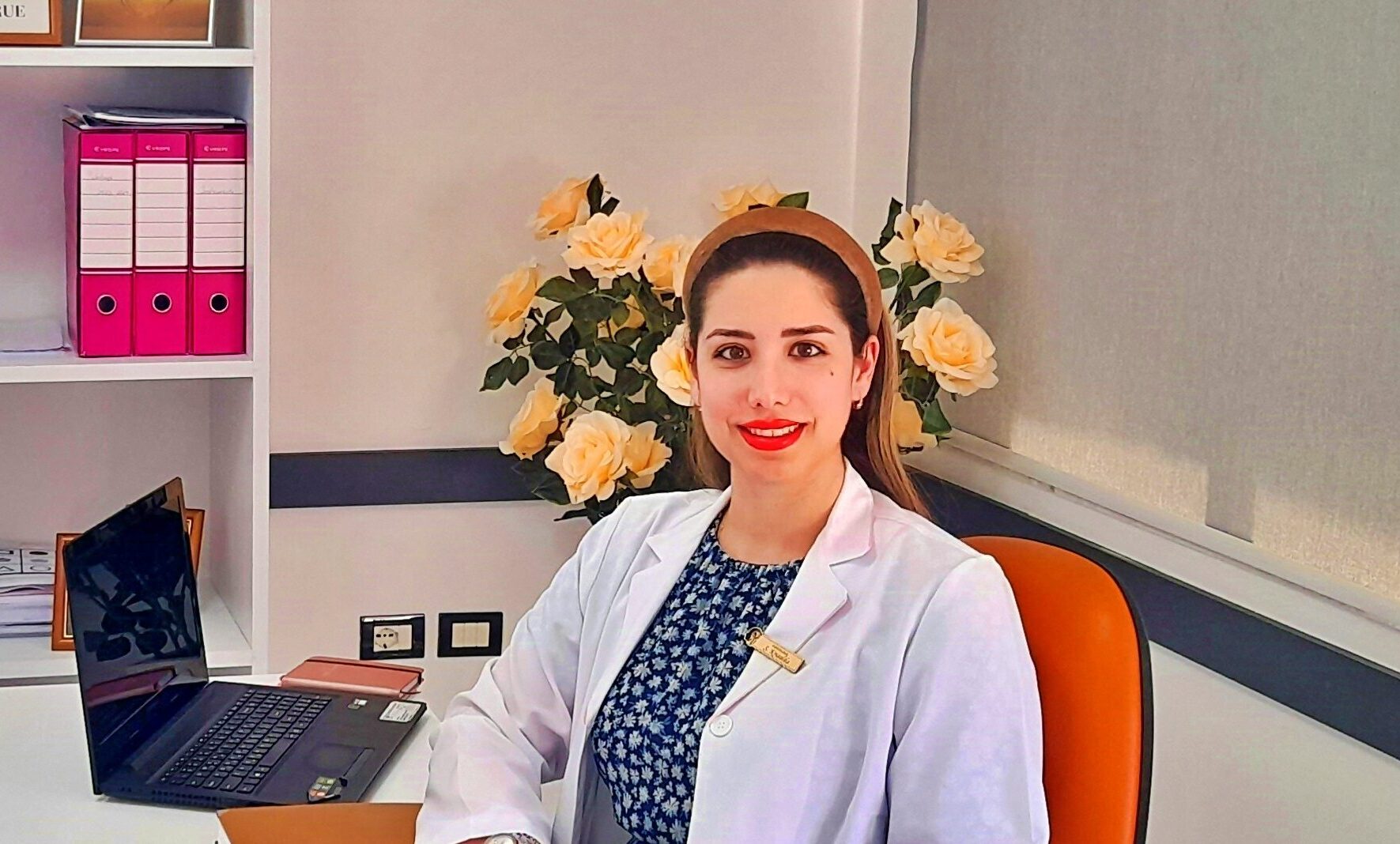
Krisalda Sauli holds the position of psychologist at Health Center No. 3 in Fier. Due to her strong background and performance, she has been selected to train the rest of the staff on the management of mental health disorders. We spoke with Krisalda about the skills she gained from this training, her work with the Peer Group, and the importance of integrating mental health into primary care.
What has your experience been like with the training you received as a trainer, supported by HAP?
The provided training has been an excellent professional experience where I felt guided and supported. Additionally, the introduction of the new psychologist service in primary care to fellow doctors and nurses has highlighted the importance of the psychologist as a member of the family medicine team and their role in the assessment and intervention process for mental health disorders.
What topics were covered, and what skills did you gain during this training?
The training covered topics related to the “Guide for the Management of Mental Health Disorders in Primary Health Care”. We focused first on the general principles of care for individuals with mental health disorders, neurological issues, and substance use disorders. Secondly, we discussed the assessment process and intervention plans for acute stress, depression, grief, psychosis, and suicide. Thirdly, we concentrated on the roles of doctors, nurses, and psychologists regarding collaborative work and clinical cases presented in the guide. Clarifying the competencies and collaboration methods with other professionals was beneficial for the establishment of the Peer Group in my health centre after the training.
Can you tell us about your work as a facilitator of the Peer Group in Health Centre No. 3 following this training? What have been some of the challenges and advantages of this approach?
Through the Peer Group, a strong professional collaboration was established among the health centre’s doctors and nurses. By focusing on clinical cases and emphasizing the role of each professional in assessing and intervening in specific disorders, it was possible to increase trust and clarify the utility of the psychologist in primary care. During the meetings, we also decided how referrals, timing, re-evaluation, and follow-ups would be carried out based on the specifics of the presented issues. For me as a facilitator, the frequency of meetings was initially challenging, but this turned into an advantage as frequent meetings allowed all professionals to discuss the cases they encountered daily. This significantly increased trust and facilitated the exchange of approaches, personal perspectives, and scientific data to more practically guide the assessment and intervention in complex cases where mental health issues might accompany acute or chronic physical problems.
Can you provide some concrete examples of changes that have occurred in the daily practice of the Family Doctor in your health centre, including mutual communication between the Family Doctor, Family Nurse, and Psychologist?
The achieved changes include:
- An internal patient referral system
- Preliminary doctor-psychologist-nurse consultations to monitor long-term intervention effects
- Discussion on the need for specialist, psychiatrist, or other doctor referrals, and collaborative work among doctors, nurses, psychologists, other doctors, and family members to ensure appropriate intervention according to case specifics
- Clear delineation of each professional’s competencies
- Facilitating discussions with patients with potential mental health issues and routinely referring them to the centre’s psychologist
- Better identification of hidden symptoms from somatic complaints or specific behaviours
- Persuasive and explanatory work by the family doctor or nurse with patients reluctant to receive services from a psychologist or psychiatrist
- Avoiding immediate prescription of medications upon the expression of concerns, by first conducting a full medical and psychological assessment
All these changes have contributed to improving the health conditions of patients who have received psychological counselling and/or psychotherapy.
How has communication between the Health Centre and the Specialist Doctor changed following these trainings?
Communication between the Health Centre and specialist doctors has become more targeted and specific. Our health centre team initially focuses on a multidisciplinary intervention plan, providing patients with the confidence and clarity about what can be offered in the Health Centre and how the intervention will gradually develop. We strive to avoid referrals, medication, or direct treatment of symptoms presented by the patient, instead viewing the individual primarily as a psycho-emotional being that should be treated holistically, considering all the issues they carry. This approach has increased the level of trust in the service, leading to better cooperation from patients. We emphasize that patients should work towards a deeper self-understanding and not be guided by the notion that mental health operates like physical health, where medications are the only solution to fully address the issues.
Have you received any feedback from beneficiary patients regarding receiving this multidisciplinary service from your Health Centre?
In periodic meetings with doctors and the psychologist, patients express their gratitude and confidence in the help they receive at the centre. It has happened that patients themselves, after receiving services from the centre, refer or bring family members with mental health problems to us for recommendations and/or treatments.
What changes does the provision of this service bring for individuals with mental health disorders compared to the past?
This service facilitates timely intervention in mental health issues by evaluating patients early when their condition is still mild. In cases where the condition is more severe, it promotes the improvement of their overall health. Additionally, this service significantly reduces the stigma associated with mental health care and self-care, enhancing individuals’ emotional well-being and fostering more empathetic communication towards these individuals within the community. The fact that people facing mental health disorders now have access to a clear and supportive system, such as the health centre, instils hope and, as reported by the individuals themselves, a desire to live and improve their lives and selves, with new dreams and goals. Certainly, the coordinated contribution of the family doctor, nurse, and psychologist is crucial for a comprehensive approach.
What additional support do you think would further improve the quality of mental health management in primary care alongside the provision of healthcare by the multidisciplinary team?
Continuous training is essential for all professionals in the family medicine team, especially regarding the assessment and intervention process for individuals with mental health issues, which would aid them in handling various cases. Additionally, establishing Peer Groups to address specific aspects of communication and mutual referrals within the health centre and with specialised care levels would be highly valuable. Lastly, something we are discussing among colleagues is the support for practising group therapy according to the needs of different age groups, but this remains to be seen.
In your opinion, how important is this training for the overall context of mental health in Albania?
Training on mental health is essential for the context of Primary Health Care in Albania, therefore, it is always necessary. Managing mental health disorders remains a challenge for every professional, and continuous training is essential, especially for primary care professionals.

